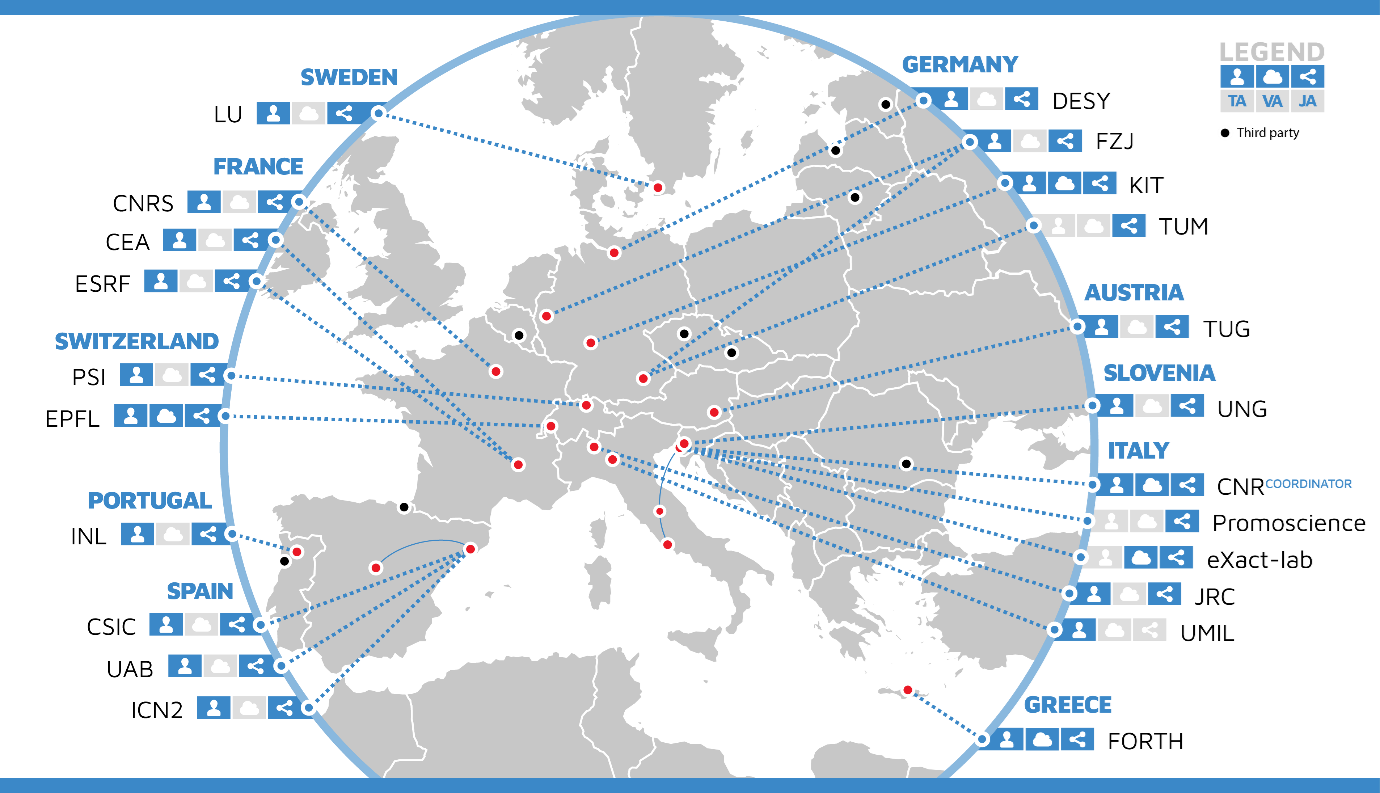NFFA-Europe PILOT for new research infrastructure schemes

The NFFA-Europe PILOT project has been launched, the extension to 2026 of NFFA-Europe, whose first five-year term ended on February 28, 2021. NFFA-Europe is a distributed research infrastructure that integrates nanofoundries (synthesis and manipulation of nanostructures) with fine analysis available at European large-scale facilities, creating a unique offer for the nanosciences and nanomaterials community. Since March 1st the consortium has been extended from nineteen to twenty-two beneficiaries and also includes nine "third parties" as scientific service providers. The project, funded by the European Union with the Horizon 2020 call INFRAIA-03-2020: Pilot for a new model of Integrating Activities, is coordinated by Cnr-Iom. The beneficiaries include academic laboratories and SMEs from nine Member States of the European Union (France, Germany, Greece, Italy, Portugal, Slovenia, Spain, Sweden and Austria) and from Switzerland, while there are three international organizations. Third parties also introduce new specialized services in the offer of Transnational Access.
“The strengthening of NEP organizational structure reflects the complexity of our goal and the variety of partners and service providers. The project is visionary, we will see to what extent it will positively influence the European model of integration and interoperability of distributed research infrastructures, especially in the circumstances of the COVID-19 pandemic. Our ambition is to confirm and expand the use of RIs as a structural support for research projects.”
Giorgio Rossi, NFFA-Europe PILOT coordinator
NFFA-Europe PILOT is going to enhance the open access platform for carrying out comprehensive projects for multidisciplinary research at the nanoscale. The projects qualified for access range from synthesis to nanocharacterization, from nanofabrication to theoretical and numerical simulations, from high resolution to high data flow methods, also with the use of synchrotron radiation sources, of ultra-short EM pulses and neutrons. Joint Activities, alongside the Transnational Access activity, aim to strengthen and implement the research infrastructure with particular attention to the interoperability of the various laboratories: on one hand, new tools for the users will be developed, on the other hand, emphasis will be put to the production of research data compliant with FAIR guidelines, to improve the findability, accessibility, interoperability, and reuse of digital assets. All this will represent an innovative offer for the use of the infrastructure also by industrial companies.
The PILOT project builds on the success of NFFA-Europe project, which is in turn built on NFFA FP7 Design study. The latter, thanks to Italian Ministry of Education grants, has allowed to consolidate the role of leader of the distributed infrastructure for nanosciences.

All partners:
CNR - Consiglio Nazionale delle Ricerche (coordinator)
CEA - Commissariat à l'énergie atomique et aux énergies alternatives
CNRS - Centre National de la Recherche Scientifique
CSIC - Consejo Superior de Investigaciones Científicas
DESY - Deutsches Elektronen-Synchrotron
EPFL - École polytechnique fédérale de Lausanne
ESRF - Installation Européenne de Rayonnement Synchrotron
eXact-lab
FORTH - Foundation for Research and Technology – Hellas
Forschungszentrum Jülich GmbH
ICN2 - Fundacio Institut Català de Nanociència i Nanotecnologia
INL - International Iberian Nanotechnology Laboratory
JRC - Joint Research Centre
KIT - Karlsruher Institut für Technologie
Lunds Universitet
Promoscience S.r.l.
PSI - Paul Scherrer Institute
TU Graz - Technische Universität Graz
TUM - Technische Universität München
UAB - Universitat Autònoma de Barcelona
Università degli Studi di Milano
Univerza v Novi Gorici
Third parties:
ALBA
CIC biomaGUNE - Centre for Cooperative Research in Biomaterials
Elettra
Euronanolab consortium
INESC Microsistemas e Nanotecnologias
IREC - Catalonia Institute for Energy Research
Parc de Recerca UAB
SOLEIL
Université de Namur

